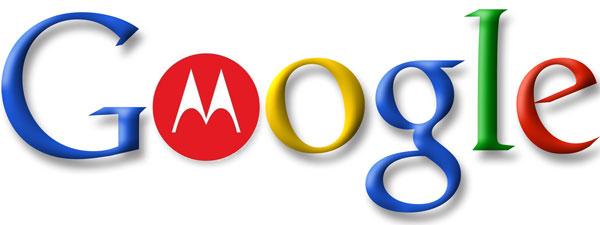Google has warded off an antitrust investigation from the U.S. Federal Trade Commission by agreeing to license certain patents to its rivals in the mobile phone business.
The FTC announced on Thursday that Google has agreed to license "essential" patents to competitors such as Apple, some of which were acquired in its acquisition of Motorola Mobility.
"The changes Google has agreed to make will ensure that consumers continue to reap the benefits of competition in the online marketplace and in the market for innovative wireless devices they enjoy," FTC Chairman Jon Leibowitz said. "This was an incredibly thorough and careful investigation by the Commission, and the outcome is a strong and enforceable set of agreements."
Google will allow competitors fair, reasonable and non-discriminatory access to patents essential to smartphones, tablets, laptops, and gaming consoles.
The search giant also agreed to give advertisers more flexibility to manage their ad campaigns with Google's AdWords along with rival ad platforms. And Google also agreed to stop lifting content from "vertical" websites, which focus on categories such as shopping or travel, and presenting it in its own vertical offerings.
The FTC found that Google's business practices could stifle competition in markets for devices like smartphones and tablets, as well as online search advertising.
"The evidence the FTC uncovered through this intensive investigation prompted us to require significant changes in Google’s business practices," said Beth Wilkinson, outside counsel to the FTC. "However, regarding the specific allegations that the company biased its search results to hurt competition, the evidence collected to date did not justify legal action by the Commission.
"Undoubtedly, Google took aggressive actions to gain advantage over rival search providers. However, the FTC’s mission is to protect competition, and not individual competitors. The evidence did not demonstrate that Google’s actions in this area stifled competition in violation of U.S. law."
In all, Google has agreed to take the following steps, as detailed by the FTC:
- Google will not seek injunctions to block rivals from using patents essential to key technologies
- Google will remove restrictions hampering advertisers’ management of their ad campaigns across competing ad platforms
The FTC also announced it has closed another investigation into allegations of search bias by Google. The commission took a closer look at Google's "Universal Search" product, but eventually concluded that changes made to Google's search algorithms could be plausibly justified as innovations that improved Google's product, and the experience for its users.
The FTC staff initially recommended in November that Google be sued via antitrust law over FRAND patnet abuse. The FTC began its civil investigation into Google last July.
Google also ran into trouble with the FTC last year for bypassing settings in Apple's Safari browser. Google agreed to pay a record $22.5 million fine for ignoring security settings Apple had designed to prevent advertisers from tracking users with cookies.
 AppleInsider Staff
AppleInsider Staff







-m.jpg)






 Christine McKee
Christine McKee
 Marko Zivkovic
Marko Zivkovic
 Mike Wuerthele
Mike Wuerthele

 Amber Neely
Amber Neely
 Sponsored Content
Sponsored Content
 Wesley Hilliard
Wesley Hilliard










73 Comments
Huh. All it took was the FTC watchdogging to ensure that google was not being evil. Imagine that.
In all, Google has agreed to take the following steps, as detailed by the FTC:
It should also be noted that the FTC would not go so far as to bar Google, or any company for that matter, from seeking injunctions based on SEP's in all cases. If a company is deemed to be an unwilling licensee the FTC may not object to an injunction as a cure. In addition a company, for instance Apple, may be be required to commit to binding arbitration if they are unable to reach agreement with the patent holder on an appropriate royalty or risk being deemed as an unwilling licensee, at least as I read it. That's something Apple has found unacceptable so far. Too, the FTC did not find Google had done anything wrong with regard to SEP's so far.
Overall it's sounds like a fair resolution IMO, and the proper way to go forward.
https://docs.google.com/viewer?url=http://www.ftc.gov/os/caselist/1210120/130103googlemotorolado.pdf
http://www.fosspatents.com/2012/11/googles-motorola-says-it-wants-binding.html
EDIT: I suspect Microsoft is fuming.
Interesting development.
It should also be noted that the FTC would not go so far as to bar Google, or any company for that matter, from seeking injunctions based on SEP's in all cases. If a company is deemed to be an unwilling licensee the FTC may not object to an injunction as a cure. In addition a company, for instance Apple, may be be required to commit to binding arbitration if they are unable to reach agreement with the patent holder on an appropriate royalty or risk being deemed as an unwilling licensee, at least as I read it. That's something Apple has found unacceptable so far. Too, the FTC did not find Google had done anything wrong with regard to SEP's so far.
More of your usual spin nonsense. The problem has always been that Google, et al. haven't been offering FRAND licenses and/or that they've been attempting to double dip. If you have any cases where Apple refused actual FRAND licensing, or refused licensing where it wasn't a case of double dipping, please cite them. Otherwise, stop spreading misinformation.
It should be noted that as part of this deal, Google also had to agree to stop stealing content from other web sites, including Yelp.